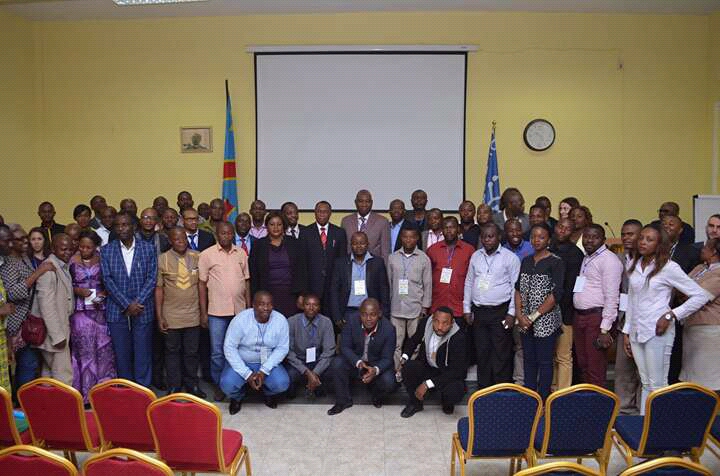DRC: National roundtable sets the stage for a new era of community forestry
February 28, 2017

A third national Roundtable on Community Forestry took place this month in the Democratic Republic of Congo (DRC), bringing together 90 stakeholders from across government, Congolese civil society and the international community.
In February 2016, the DRC government passed game-changing community forest legislation in what is arguably the most significant legal development related to Central Africa’s tropical forests in recent years. This new legal environment has created an enormous opportunity for local communities and indigenous forest dwellers to take a central role in forest management.
The Roundtable, held in Kinshasa on 15th and 16th February, follows previous national events in October 2015 and May 2016 and represents an important milestone in the creation a consensus-based, participative approach to community forestry.
Indeed, participants of the Roundtable came from across DRC, including the provinces of Equateur, Kongo Central, Kuilu, Tshopo, Nord-Kivu, Sud-Kivu and Ituri.
“This inclusive and participatory approach is very encouraging and offers a lot of hope for the forest communities which stand to benefit from the new legal environment,” said RFUK’s Head of Programmes, Samuel Diéval. “With millions of hectares of rainforest potentially available for community forestry, there’s a lot at stake here.”
As we start piloting the first community-managed forests in the coming months, it will be crucial that stakeholders continue to work in partnership.
A significant outcome of the Roundtable is a newly revised national strategy on community forests. This is to be finalised and adopted by DRC’s Ministry of Environment, Nature Conservation and Sustainable Development (MECNDD) and used as a guiding document for the implementation of community forestry on the ground.
“The Ministry is determined to conduct this process in a safe manner with the support of the project partners who will assist not only local communities, indigenous peoples and civil society, but also – and above all – the administration in charge of monitoring and coordinating this important process,” said Léonard Mwamba Kanda, Secretary-General of MECNDD.
The adoption of the national strategy on community forests lays the groundwork for a more sustainable application of community forestry. The next phase of RFUK’s Community Forests in DRC project [1] will be to start piloting community forest models in a range of different contexts and locations.
[1] Community Forests in DRC is a consortium project, funded by the UK Department for International Development (DfID), which brings together several international and Congolese civil society organisations with the aim of alleviating poverty, improving rural livelihoods and reducing deforestation in the Congo Basin.
Share this: